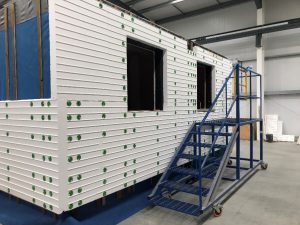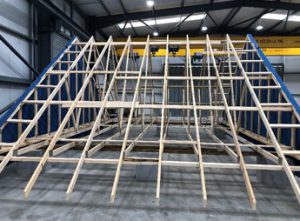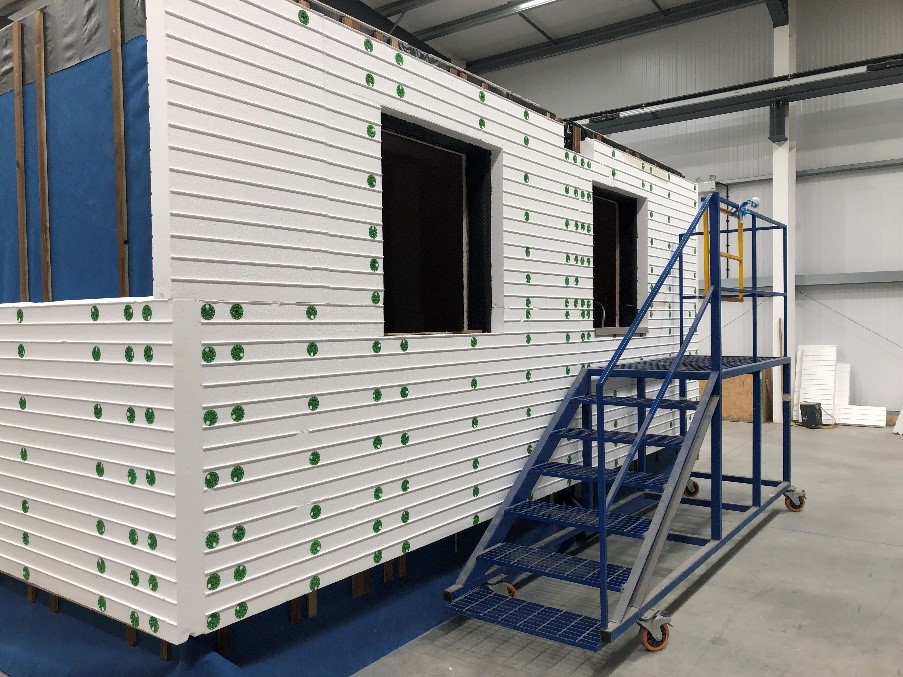The key message of our study focuses on making the business case for adopting MMC, via a strategic asset managing approach, modelling comparative whole life costs, and producing the modular units.
Magna Housing explored the business case, in collaboration with all other parties including stakeholders, demonstrating why the government drivers for offsite methodology, via the Industrial strategy and the Construction Sector Deal, work from a landlords perspective.

Key features are:
- Adoption of a modular first approach, by Magna Housing.
- From Complex Asset Management Solutions (CAMS), the whole life cycle cost assessments of the modular system and alternative procurement routes to compare which solution delivers the best return for Magna over time.
- The redesign of their portfolio of homes, informed by 10 years of customer feedback, for modular manufacture.
- BOPAS accreditation of the system to manufacture the homes.
- The creation of a suite of contract documents for procuring via manufacture.
- A demonstration home to deliver proof of concept.
- Through CAMS; the adoption of the principles of ISO 55001, to assess Magna’s business readiness for adopting a new MMC using best global asset management practices
- Via SWPA/LHC Group, a procurement solution to enable a client cluster around this factory to drive repetition and volume.
- An initial order to produce 45 homes.
- In 2020 collaborative working, with the Local Planning Authority, to ensure the planning system creates a level playing field for factory build homes will begin.
Across the country there is a demand to build more homes, and these homes need to have high and consistent quality standards. One of the key reasons Magna Housing adopted a modular first approach to development is to improve the consistency of quality of their new homes and eradicate the much talked of ‘Performance GAP’.
The number of defects from traditionally constructed homes were high and costing large amounts in remedial works and staff resources. Resident satisfaction scores were also low, sadly resident expectations of new builds are that they are likely to have defects.
Magna carried out a strategic review of its asset management and creation processes and has developed a strategic Asset Management Plan. This aims to provide greater integration between asset creation, maintenance, and operations through a cultural shift in the way Magna views whole life principles and costs.

As part of this analysis a need was identified for a tool to assess/compare the costs of MMC vs traditional build, and this tool is now in development.
Early analysis shows that comparative whole life cycle costs for MMC based on actual figures are lower than traditional build over 30 years, even when allowing for the most pessimistic view when considering data uncertainty on future performance of the modular solution.
Further reductions in costs will be achieved with commitment to the methodology e.g. design standardisation, aggregation of demand and an assured pipeline.
A delivery partner to deliver Magna’s MMC requirement was found by a collaborative process with the South West Procurement Alliance (part of the LHC Group). Initial discussions were held with framework providers on the NH1 New Homes framework and then a formal mini tender was carried out to assess the ability and willingness of the potential supplier to collaborate.
Rollalong was selected as the preferred provider, after a thorough selection process, and has worked with the Magna team to develop the designs for modular teams and is committed to providing further savings as the number of units going through increases.
Key achievements
- Client leadership through adoption of ISO 55001 principles to housing management
- Collaborative culture
- ‘Off the shelf’ house offer


